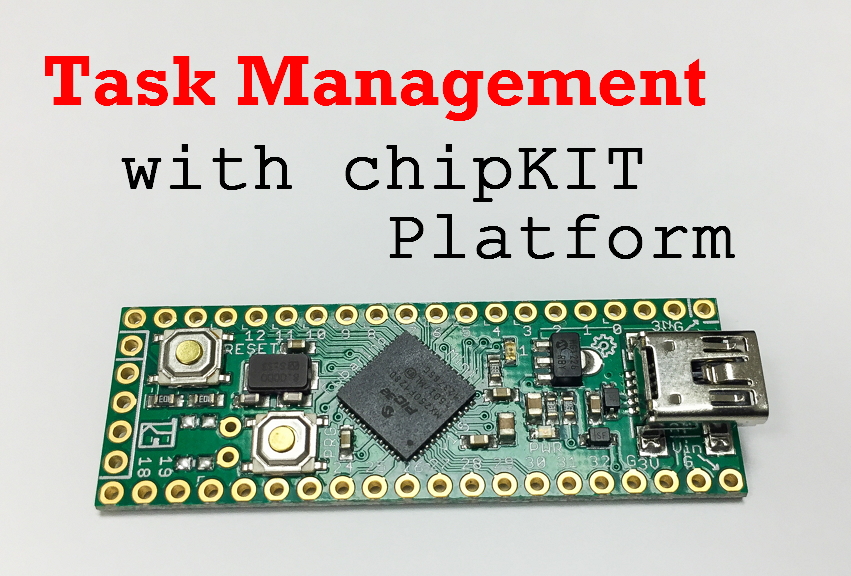- Get Started
- Learning
- Products
- Blog
- Beginner
For first time users of chipKIT modules. - Intermediate
For users who have a moderate exposure with chipKIT modules. - Advanced
For users who are experts with chipKIT modules. - Developers
- About Us
- Support
chipKIT Task Manager Example
Posted 2015-09-16 13:34:49 by Majenko
Besides the many Arduino-based core functions available to you, the chipKIT platform also provides chipKIT-specific core functions for the core timer service and task management.
In this post, we focus on task management, by providing a simple
example. Task Management essentially allows for multiple tasks to run in
the background, which can simplify the programming in your loop()
function. Read the overview on Task
Management
for more information. The example below animates an LED in the
background by using the createTask() core
function.
Notice how this task-management functionality provides for a simple
RTOS-like environment.
#include <SoftPWMServo.h>
char dim = 0;
/* Using the Software-based PWM Servo library,
* the UpdateLED() function below dims the
* PIN_LED1 (You can reference the actual pin
* number for your board using the Board_Defs.h
* file for your particular chipKIT board)
*/
void UpdateLED(int id, void * tptr)
{
SoftPWMServoPWMWrite(PIN_LED1, dim++);
if (dim == 70) {
dim = 0;
}
}
void setup() {
/* createTask() is a chipKIT "Task Management"
* core function. In this case, it takes the
* function we defined above, UpdateLED(), as a
* task to perform. It provides a scheduling interval
* of 20 milliseconds and initializes the enable
* state of the task. When the board is turned on
* this setup() will run, and the new task will be
* enabled.
*/
createTask(UpdateLED, 20, TASK_ENABLE, NULL);
}
/*
* Notice, there is no need to run anything else in the loop()
* portion for the UpdateLED() "task" to run in the background.
*/
void loop() {}
